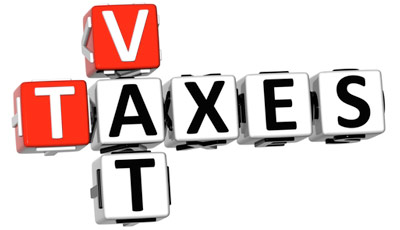Philippines Responds To Businesses’ VAT Refund Concerns

The Philippines tax authority has said that it will process value-added tax refund and credit claims within 120 days of an application, in response to an outcry from businesses about recent Revenue Memorandum Circular (RMC) No. 54-2014, which clarified the rules surrounding the processing of such requests.
In its response on November 4, 2014, the Philippines Bureau of Internal Revenue (BIR) said that Section 112 of the National Internal Revenue Code, governing the period relating to the processing of VAT refunds and credits, has been in existence since January 1, 1998, the year that the law took effect.
It said, therefore, that RMC 54-2014 merely confirmed the requirements set under the law that the Commissioner shall grant a refund or issue a tax credit certificate within 120 days from the date of submission of complete documents. In the case of full or partial denial of the claim, or the failure on the part of the Commissioner to act within the period prescribed, the taxpayer may, within 30 days from the receipt of the decision, appeal the decision or the unacted claim with the Court of Tax Appeals.
A group of 20 business organizations and professional groups including the Tax Management Association of the Philippines (TMAP) had filed on October 21, 2014, a joint letter with the Department of Finance challenging the conditions.
TMAP President, Rina Manuel, said that: “The retroactive application of the strict 120+30-day rule to all pending VAT refund applications is confiscatory since it will result in a large scale automatic denial of all pending applications.”
RMC 54-2014 confirmed that any VAT-registered person whose sales are zero-rated or effectively zero-rated, may, on certain conditions, and within two years after the close of the taxable quarter when the sales were made, apply for a refund of the creditable input tax due or attributable to such sales. The Circular said that inaction by authorities is tantamount to a refusal. The Circular also set out the documentation required from a taxpayer to secure a refund, and exceptions to the 120+30 day period rule.
The business groups said that the Circular had removed taxpayers’ fundamental rights to an administrative appeals process. They said: “With the [Circular’s] interpretation that BIR inaction on VAT refund applications is “deemed denial,” the RMC effectively encourages the BIR to abdicate its administrative duty to process refund claims by compelling taxpayers to pursue judicial claims with the CTA.”
In addition, they said that: “Instead of streamlining the VAT refund application process, RMC 54-2014 makes compliance more burdensome to taxpayers by imposing impractical and unrealistic requirements that are very difficult to comply with, or by prescribing additional requirements not found under the law.”
In its response, the BIR newly said it will commit itself to process all applications within 120 days, to shore up confidence in the process.
It said that since the implementation of RMC 54-2014 up to the end of September 2014, the BIR received 134 applications for VAT refunds or credits, processed for approval 68 applications for tax credit, 3 applications for refund, and 2 applications for BOC (purely importation), and denied 31 applications.
The BIR said that by introducing more stringent controls on the documentation required, and by making decisions solely on the basis of information provided, rather than requiring follow up inquiries by revenue officers, the BIR aims to reduce the potential for collusion or corruption.
Sourse: taxnews – Philippines Responds To Businesses’ VAT Refund Concerns




























